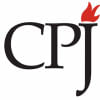Digital Security Act: JS body sits with editors, BFUJ, ATCO today
The parliamentary standing committee on post, telecom and ICT has invited Editors' Council, Association of Television Channel Owners and a faction of Bangladesh Federal Union of Journalists (BFUJ) to a meeting today to hear their views on the proposed Digital Security Act, 2018.
The meeting would be held at the Jatiya Sangshad Bhaban at 11:00am, said Sirajul Islam, personal secretary to the chairman of the parliamentary watchdog.
Editors' Council President Golam Sarwar, editor of Daily Samakal; General Secretary Mahfuz Anam, editor and publisher of The Daily Star; BFUJ president and secretary general Monjurul Ahsan Bulbul and Omar Faruq; and ATCO president and general secretary Salman F Rahman and Shykh Seraj were invited to the meeting, added Sirajul.
Imran Ahmed, ruling Awami League lawmaker from Sylhet-4 and also the chairman of the standing committee, will preside over the meeting.
State Minister for ICT Zunaid Ahmed Palak, lawmakers AKM Rahmatullah, Moazzem Hossain Ratan, Showkat Hasanur Rahman, Sharif Ahmed, Afil Uddin, Kazi Firoz Rashid and Hosne Ara Lutfa Dalia are the members of the committee.
ICT Minister Mustafa Jabbar and Law Minister Anisul Haq are also likely to attend the meeting.
The much-debated Digital Security Bill, 2018 was placed in parliament on April 9 amid growing concerns from journalists and rights activists that freedom of the press and expression would be put to the sword if the bill was passed.
The committee has been given four weeks to place its report before the House following scrutiny of the bill.
At a meeting on April 22, the parliamentary body on post, telecom and ICT decided to invite Editors' Council, BFUJ and ATCO to hear their concerns about the proposed legislation.
On April 19, Law Minister Anisul Huq at a meeting assured the Editors' Council of removing loopholes and vagueness in the Digital Security Act through arranging talks between the editors and the parliamentary standing committee concerned.
The minister also said the concerns raised by the Editors' Council over some sections of the proposed law were largely logical.
Speaking at the meeting, Mahfuz Anam said sections 21, 25, 28, 31, 32 and 43 of the proposed law would go against the freedom of speech and independent journalism.
On April 23, leaders of a faction of BJUJ at a meeting with the law minister recommended amending the proposed law to incorporate a provision for forming a unit under Bangladesh Press Council.
They said the proposed law cannot be applied against journalists or media outlets without prior approval from the cell.
WHAT THE SECTIONS SAY
Section 21 of the proposed law says anyone spreading negative propaganda against the Liberation War or the Father of the Nation, using digital devices or instigating to do so, will risk being sentenced to up to 14 years in jail or fined up to Tk 1 crore or both.
He or she will face up to life sentence or Tk 3 crore in fine or both for committing the offence for the second time, it says.
According to Section 25 of the proposed law, a person may face up to three years in jail or Tk 3 lakh in fine or both if he is found to have deliberately published or broadcast in a website or electronic form something which is attacking or intimidating or which can make someone feel disgruntled; knowingly published or broadcast false and distorted (full or partial) information to annoy or humiliate someone; knowingly published or broadcast false and distorted (full or partial) information to tarnish the image of the state or to spread rumours.
Second-time offenders will face up to five years in jail or Tk 10 lakh fine or both.
Section 28 says a person may face up to seven years in jail or Tk 10 lakh in fine or both if he is found to have deliberately published or broadcast something in a website or in electronic form or got it done to hurt one's religious sentiment and values.
The offender will face up to 10 years in jail or Tk 20 lakh in fine or both for committing the offence for the second time.
Section 31 stipulates that a person may face up to seven years in jail or Tk 5 lakh in fine or both if he is found to have deliberately published or broadcast something in a website or in electronic form which can spread hatred and create enmity among different groups of people and communities and can cause deterioration in law and order.
If found guilty for the second time, the offender can be punished by up to 10 years in prison or Tk 10 lakh in fine or both.
According to section 32 of the proposed law, a person may face up to 14 years in jail or Tk 25 lakh in fine or both on charges of computer spying or digital spying if he illegally enters the offices of the government, semi-government, autonomous or statutory bodies and collects or preserves or sends any top secret or secret documents through a computer, digital device, computer network, digital network or any electronic form and helps others to do that.
He will face up to life sentence or Tk 1 crore in fine or both for committing the crime for the second time.
An offender may face up to 14 years in jail or Tk 1 crore in fine or both for hacking, section 34 of the bill says.
As per section 43 of the draft law, a police official can frisk or arrest anyone without any warrant issued by a court.
If a police official believes that an offence under the proposed law has been committed in a certain place or is being committed, or there is a possibility of crimes, or there is a possibility of destroying evidence, he can search the place or frisk any person present there.

 For all latest news, follow The Daily Star's Google News channel.
For all latest news, follow The Daily Star's Google News channel. 








Comments